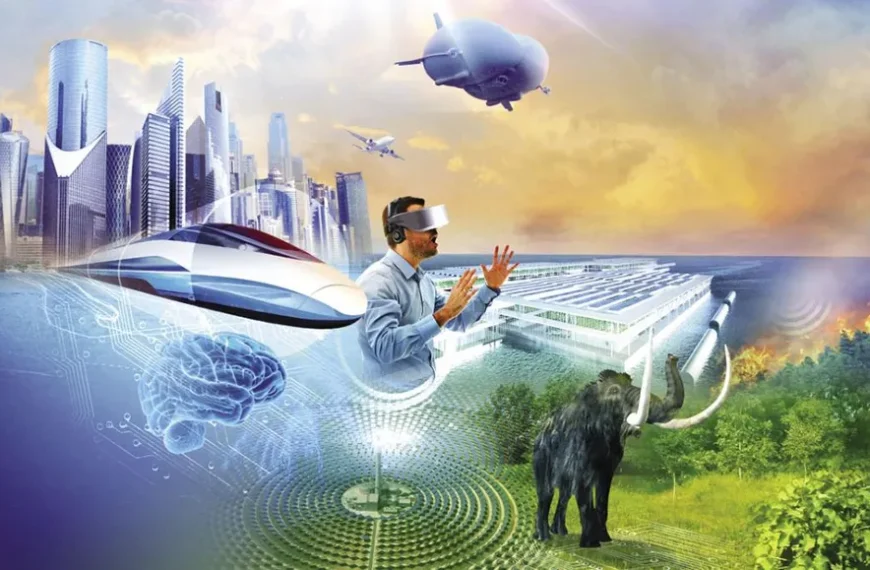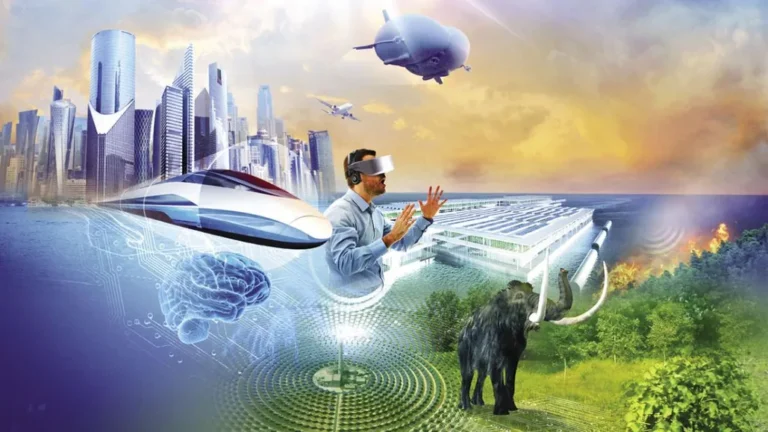Introduction
As urban populations grow, cities face increasing challenges such as traffic congestion, pollution, and resource management. Technology is providing a solution in the form of smart cities, where digital innovations improve urban living and sustainability.
What are Smart Cities?
Smart cities use technology, data, and connectivity to manage resources more efficiently and improve residents’ quality of life. This includes smart traffic systems, energy-efficient buildings, and digital governance platforms that make public services more accessible.
Smart Transportation
Traffic congestion is a major problem in urban areas. Smart cities use sensors, GPS, and data analytics to monitor traffic flow and reduce jams. Electric buses, bike-sharing systems, and self-driving cars are also part of sustainable urban mobility.
Energy and Sustainability
Smart cities prioritize renewable energy and efficient energy use. Smart grids and smart meters help reduce wastage, while solar and wind power provide clean alternatives to fossil fuels. Green buildings with energy-efficient designs also play a major role in reducing carbon footprints.
The Rise of Smart Cities
Introduction
As urban populations grow, cities face increasing challenges such as traffic congestion, pollution, and resource management. Technology is providing a solution in the form of smart cities, where digital innovations improve urban living and sustainability.
What are Smart Cities?
Smart cities use technology, data, and connectivity to manage resources more efficiently and improve residents’ quality of life. This includes smart traffic systems, energy-efficient buildings, and digital governance platforms that make public services more accessible.
Smart Transportation
Traffic congestion is a major problem in urban areas. Smart cities use sensors, GPS, and data analytics to monitor traffic flow and reduce jams. Electric buses, bike-sharing systems, and self-driving cars are also part of sustainable urban mobility.
Energy and Sustainability
Smart cities prioritize renewable energy and efficient energy use. Smart grids and smart meters help reduce wastage, while solar and wind power provide clean alternatives to fossil fuels. Green buildings with energy-efficient designs also play a major role in reducing carbon footprints.
Digital Governance
Governments in smart cities use technology to deliver services faster and more transparently. Online portals and mobile apps allow citizens to pay bills, report issues, and access government services easily. This strengthens trust and improves civic engagement.
Safety and Security
Technology also enhances security in smart cities. Surveillance cameras, emergency alert systems, and predictive analytics help prevent crime and respond to emergencies quickly. Cybersecurity measures are equally important to protect sensitive city data.
Challenges of Smart Cities
Building a smart city requires heavy investment and strong infrastructure. Data privacy, cybersecurity risks, and the digital divide are major challenges. Policymakers must ensure that technology benefits all citizens, not just a privileged few.
The Future of Smart Cities
With the Internet of Things (IoT), 5G connectivity, and AI, smart cities will continue to evolve. They promise cleaner, safer, and more efficient urban living if implemented responsibly and inclusively.
Conclusion
Smart cities represent the future of urban development. By integrating technology into governance, transport, and sustainability, they can address urban challenges and create healthier, more livable environments.
see also: The Impact of Technology on Modern Society
Digital Governance
Governments in smart cities use technology to deliver services faster and more transparently. Online portals and mobile apps allow citizens to pay bills, report issues, and access government services easily. This strengthens trust and improves civic engagement.
Safety and Security
Technology also enhances security in smart cities. Surveillance cameras, emergency alert systems, and predictive analytics help prevent crime and respond to emergencies quickly. Cybersecurity measures are equally important to protect sensitive city data.
Challenges of Smart Cities
Building a smart city requires heavy investment and strong infrastructure. Data privacy, cybersecurity risks, and the digital divide are major challenges. Policymakers must ensure that technology benefits all citizens, not just a privileged few.
The Future of Smart Cities
With the Internet of Things (IoT), 5G connectivity, and AI, smart cities will continue to evolve. They promise cleaner, safer, and more efficient urban living if implemented responsibly and inclusively.
Conclusion
Smart cities represent the future of urban development. By integrating technology into governance, transport, and sustainability, they can address urban challenges and create healthier, more livable environments.





